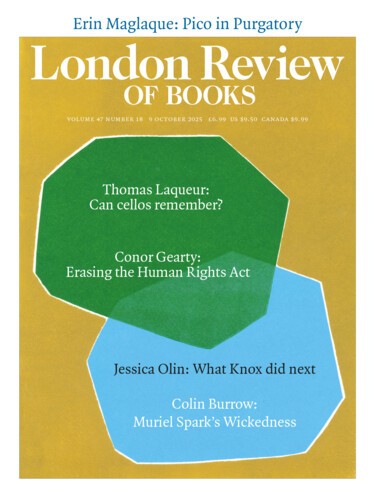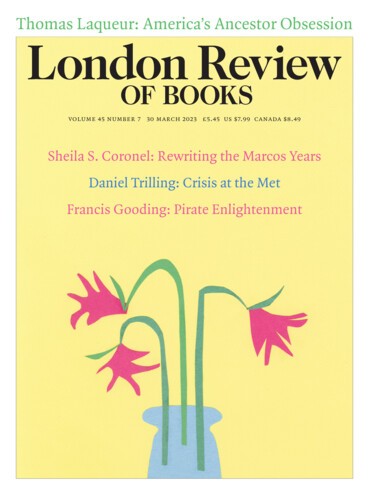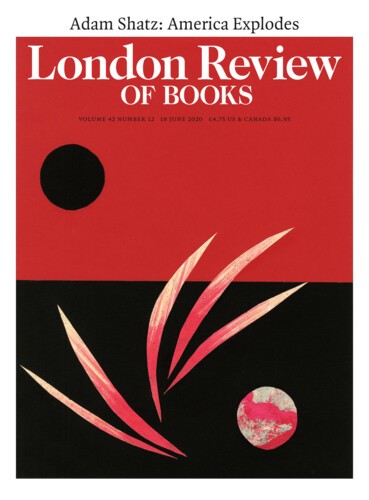Thomas Laqueur
Thomas Laqueur is emeritus professor of history at Berkeley. His most recent book is The Work of the Dead: A Cultural History of Mortal Remains.
A Different Life: Can cellos remember?
Thomas Laqueur, 9 October 2025
On 29 January this year, a cello made in 1730 by Nicolò Gagliano, a member of the famous Neapolitan dynasty of luthiers, stood in front of the European Parliament to mark International Holocaust Remembrance Day. It had belonged to Pál Hermann, a Jewish Hungarian composer and virtuoso cellist who had studied under Kodály and Bartók and gave concerts throughout Western...
The Pocahontas Exception: America’s Ancestor Obsession
Thomas Laqueur, 30 March 2023
Genealogy – the records of descent, the pedigrees of mortals and gods, of genos, race, kind and offspring – is one of the great feats of the human imagination: a vast collection of stories, both intimate and cosmic, that bind the living to the dead and to one another, the past to the present and the present to what is to come. It is a primal work of culture, a narrative...
While Statues Sleep
Thomas Laqueur, 18 June 2020
Coming to terms with the past in the United States is a different temporal matter. At issue is the entire national past: it is four hundred years since African slaves came to these shores, more than a hundred and fifty since the Fourteenth Amendment made African Americans full citizens; almost sixty since the longest-lived legally grounded racial regime in world history ended with the legislation and judicial decisions of the 1960s. This is a past that demands we explain not, as in the German case, the reason we succumbed to an evil ideology, but the reason it has been so difficult to do what Lincoln hoped for at Gettysburg, to rededicate ourselves to the proposition that all men are created equal and to come to an agreement about what this might mean. Ten years as against four centuries makes a big difference. Comparison is a mug’s game on this timescale. The presence or absence of victims’ descendants is also of huge significance in the comparative emotional history of atonement.
They weren’t looking
25 November 2019
Pieces about Thomas Laqueur in the LRB
Back from the Underworld: The Liveliness of the Dead
Marina Warner, 17 August 2017
The dead present an enigma that can’t be grasped: they are always there in mind, they come back in dreams, live in memory, and if they don’t, that is even more disturbing, somehow reprehensible.
Too Much: a history of masturbation
Barbara Taylor, 6 May 2004
Lounging in a boat anchored near his home, daydreaming about a ‘pretty wench’ he’d spotted in Westminster earlier that day, Samuel Pepys became so aroused that he ejaculated...
Do women like sex?
Michael Mason, 8 November 1990
The other day I came across an article by Professor Laqueur, written some fourteen years ago, which makes a striking and dismaying contrast to the book he has just published. The contrast is...
Read anywhere with the London Review of Books app, available now from the App Store for Apple devices, Google Play for Android devices and Amazon for your Kindle Fire.
Sign up to our newsletter
For highlights from the latest issue, our archive and the blog, as well as news, events and exclusive promotions.




